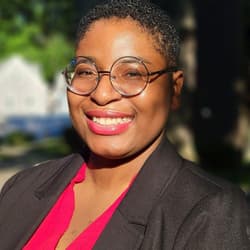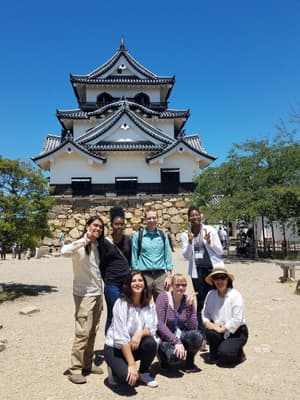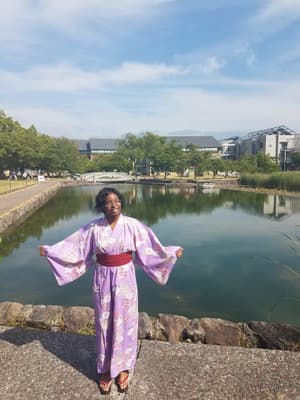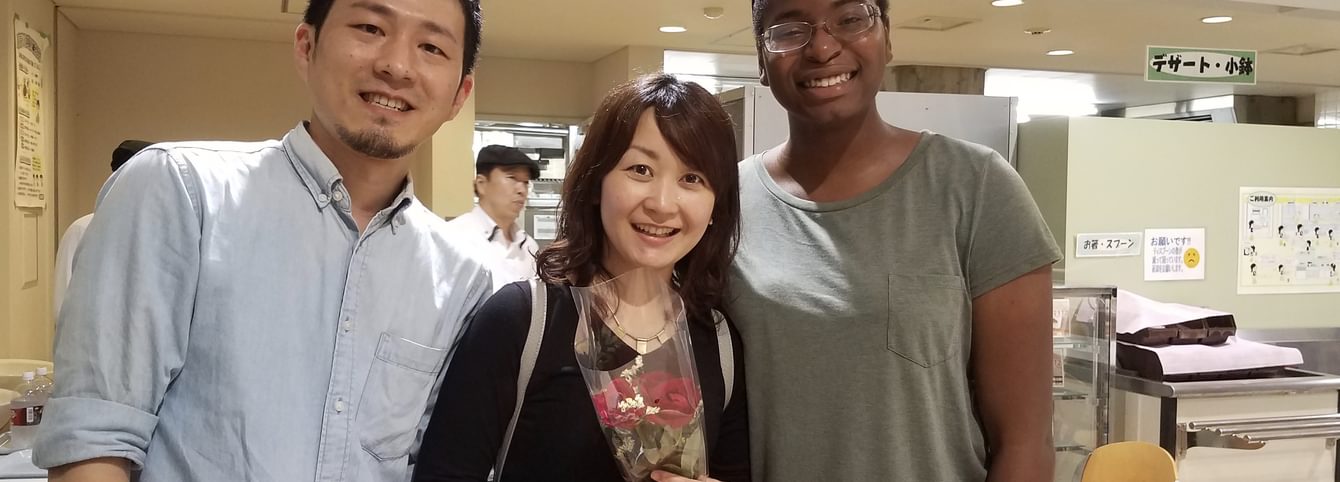Meet Chisom Obasih, psycholinguistics researcher, 2017 CLS Japanese alumna, and current CLS Refresh participant! For Chisom, what began as a curiosity for Anime and Japanese voice acting has evolved into a career in psycholinguistics research merging her interests in Japanese language and culture with neuroscience. Chisom graduated from University of Pittsburgh with degrees in Neuroscience and Japanese and is currently pursuing a PhD in Cognitive Neuroscience at Carnegie Mellon University.

Chisom believes strongly in the power of cross-cultural collaboration in STEM and hopes to return to Japan in the near future to conduct psycholinguistic research.
Chisom recently sat down with Communications Officer Rori DiFiore to discuss her language learning journey, the field of psycholinguistics, and why more STEM majors should be studying a second language.
Rori DiFiore: Where did your interest in Japanese begin?
Chisom Obasih: I became interested in Anime and Japanese voice acting during high school. In Japan the culture around voice actors is different than in the U.S., they are closer to live action actors in terms of celebrity. I realized I wanted to learn more about Japanese culture than what I saw in anime, games, and manga. Japan and Japanese culture are more than that. I thought what better way to learn about the culture and the people than to learn the language. As an undergraduate at University of Pittsburgh, I took a class on Japanese linguistics which opened my eyes to the fields of psycholinguistics and neurolinguistics. I decided to double major in Japanese and Neuroscience. Now I am knee-deep in psycholinguistics research for my PhD and it’s really exciting!

RD: Wow! Those are two of the hardest majors!
CO: It was worth it though! After my sophomore year, I joined a lab conducting research on auditory neuroscience. We researched second language acquisition and how our ability to learn a language changes as we get older. I was also interested in what made learning Japanese and Mandarin challenging for English speakers which led me to explore pitch accent. I ended up doing my senior thesis on the topic. I was happy they let me count it for both majors! Everyone in my Japanese capstone course was conducting research involving literature reviews and archives meanwhile I was creating an experiment with human participants and analyzing data. I’m so glad I majored in Japanese because it introduced me to the humanities and social science research. I feel lucky that I got to explore topics I was interested in from both perspectives.
RD: What was one of your most memorable moments from your CLS experience?
CO: My Japanese language partner happened to be taking a linguistics course. She knew I was interested in this field and offered to introduce me to her linguistics professor. The three of us met and had a conversation in Japanese comparing the differences between English and Japanese linguistics—it was so cool! We talked about how sentence structure and words can be different but have the same meaning and how this relates to translation. I remember the professor saying to me a sentence in Japanese which translated to, “I took the car to school.” And then asking how I would say this same sentence in English, I responded, “I drove to school.” It made me think of the nuances involved in sentence structure and why it is more natural in one language to connect the action with an object whereas in the other it's more natural to use a simple verb to describe the action. I realized at that moment how far I’d come with my language learning.

RD: In what ways has learning a critical language impacted your life either personally or professionally?
CO: I came into college thinking I would follow the pre-med track. I was taking Japanese because of the value of learning another language but I didn’t see how I was going to use it in a medical career. I thought maybe I would use it if I ever saw Japanese patients. At that time, I was exploring working in a neuroscience lab researching the musculoskeletal system. But when I started looking into what research labs were doing around psycholinguistics, I thought wow, this is for me. If it hadn’t been for studying Japanese, I would never have learned about the field of psycholinguistics. I feel like I am truly in the field I was always meant to be in. CLS fast-tracked my language learning and helped me develop confidence in my critical thinking and problem-solving skills. I learned so much during that summer both in and outside of the classroom. The next spring, I ran out of Japanese classes to take towards my major, so I was able to do an independent study. It was though through my independent study that I discovered my interest in studying pitch accent which became the focus of my senior thesis.
RD: How has your CLS Refresh experience been?
CO: CLS Refresh came at the perfect time because after taking a break between undergraduate and graduate school, my Japanese needed a refresh! My tutor is so fantastic. She is great at her job, funny and kind. I told her I wanted to focus on improving my reading skills so before every class she gives me a new reading. If I can read it beforehand, great, but if not, I will read it out loud with her during our sessions. She is very understanding and accommodating of the fact that I am a graduate student. With the one-on-one format, I am learning more about the connotations of different words and how to use them in a variety of social situations. It is less formal than in a classroom so we’ve been able to have more side discussions which is helping me to speak more naturally. CLS Refresh has given me exactly what I needed.
RD: That’s fantastic to hear. I’m so glad that CLS Refresh has really been able to fit your needs. Why should more STEM majors study a language?
CO: I love that question. I think it is so important for all STEM majors to study a second language. There is inherent value in opening your mind to different types of learning. We should not view America or the English-speaking world as the center of research. It is extremely important to get a non-western perspective on every research topic. Every single one, in every field. We need more cross-cultural collaboration. Culture is embedded in who we are as humans to the point where we do not notice that it seeps into things that are not cultural on the surface. People from diverse cultures offer new perspectives on research, new methods, questions, and ways of analyzing data. The more people of diverse backgrounds you get in a group, the better the science will be. And so many people around the world have learned English, it's only fair to try and learn another language!


